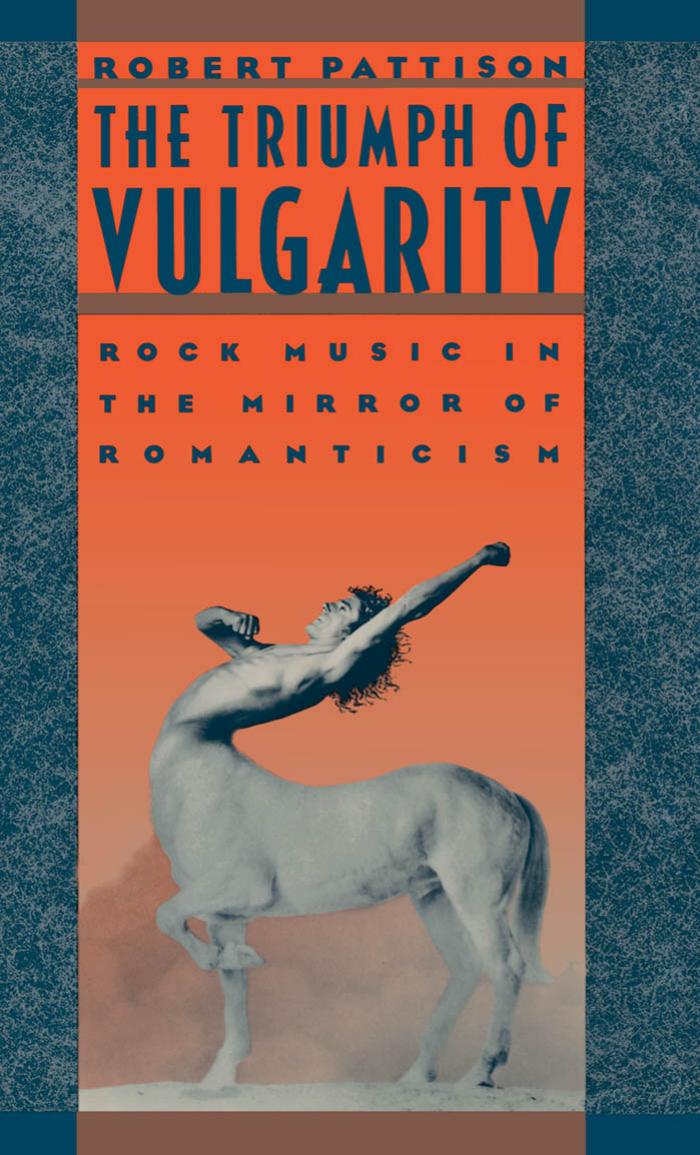The Triumph of Vulgarity: Rock Music in the Mirror of Romanticism by Robert Pattison

Author:Robert Pattison
Language: eng
Format: mobi, pdf
Tags: Oxford University Press, Music - Social Aspects, Romanticism in Music, USA, Social aspects, Music and Society, Popular Culture, History and Criticism, Influence Of, Rock Music - History and Criticism, General, Music, Rock, Rock Music, History & Criticism, Genres & Styles, 9780195038767, Social Science
ISBN: 9780195038767
Publisher: Oxford University Press
Published: 1987-01-22T00:00:00+00:00
ART MUSIC
Reduced to theory, rock’s electric pantheism presents a mirror image of the doctrines that support twentieth-century experimental art music. “Let us take thought how music may be restored to its primitive, natural essence … within man himself as universally and absolutely as in Creation entire.” “I dream of instruments obedient to my thought and which with their contribution of a whole new world of unsuspected sounds will lend themselves to the exigencies of my inner rhythm.” “Noise is any sound one doesn’t like.” “Magnetic tape music makes it clear that we are in time itself.” These are not the proclamations of pretentious rockers but the assertions respectively of Ferruccio Busoni in 1907, Edgar Varèse in 1917 and in 1962, and John Cage in 1958. In its love of technological noise as in everything else, rock follows the Romantic avant-garde, and it is no accident that the appearance of rock coincided with the great age of experimental music in America, the 1950s. The theories of the experimentalists are shot through with a love of the primitive, with oriental mysticism, with insistence on feeling, and with a desire to relocate performance in self—the hallmarks of rock mythology as well. The experimentalists are the linear descendents of European Romanticism, and not only do they share a 1950s art geist with rock, but a common ancestry in Romantic theory.
But rock is after all a mirror image of art music. The mirror image is identical but transposed. Rock stands to art music as matter stands to antimatter: identical in makeup but opposite in charge. What reverses the two is vulgarity. The experimental art musician is only a radical inside the conservatory. For all his protestations on behalf of noise and nature, he is a captive of the elite audience he hopes to supersede. Transcendence is implicit in his work, no matter what he says, and transcendence always means small audiences, refined taste, and recondite theory.
Sophisticated critics have sometimes tried to ennoble rock by discovering in it the direct influence of art music. So art critics hail Frank Zappa as a descendent of Ives, Stravinsky, and Cage, a “performer of truly serious contemporary music” whose “efforts to reach the Gesamtkunstwerk (union of the arts) of Richard Wagner frequently overshadow the virtuosity of his composition.” This example is illustrative. First, the influence always flows from the art musicians to the rockers, not in the other direction. Rock is derivative. It does not make new Romantic theory but borrows from existing manifestos, consciously in the case of Zappa, who grew up studying Varèse, but usually by intuitive exploitation of Romantic ideas that have gained general currency. If the poets are the unacknowledged legislators of the world, the rock musicians are the officials who take care that their laws be faithfully executed. The derivative nature of rock’s Romantic instincts makes the music a target for refined opprobium, since one of the most terrible charges in Romantic jurisprudence is that of imitation.
But rock’s derivative Romanticism is its assurance of success.
Download
The Triumph of Vulgarity: Rock Music in the Mirror of Romanticism by Robert Pattison.pdf
This site does not store any files on its server. We only index and link to content provided by other sites. Please contact the content providers to delete copyright contents if any and email us, we'll remove relevant links or contents immediately.
The Goal (Off-Campus #4) by Elle Kennedy(13467)
Kathy Andrews Collection by Kathy Andrews(11708)
Diary of a Player by Brad Paisley(7460)
What Does This Button Do? by Bruce Dickinson(6123)
Assassin’s Fate by Robin Hobb(6102)
Big Little Lies by Liane Moriarty(5679)
Altered Sensations by David Pantalony(5030)
Pale Blue Dot by Carl Sagan(4886)
Sticky Fingers by Joe Hagan(4086)
The Death of the Heart by Elizabeth Bowen(3531)
The Heroin Diaries by Nikki Sixx(3479)
Beneath These Shadows by Meghan March(3249)
Confessions of a Video Vixen by Karrine Steffans(3230)
How Music Works by David Byrne(3157)
The Help by Kathryn Stockett(3067)
Jam by Jam (epub)(3004)
Harry Potter 4 - Harry Potter and The Goblet of Fire by J.K.Rowling(2973)
Strange Fascination: David Bowie: The Definitive Story by David Buckley(2782)
Petty: The Biography by Warren Zanes(2682)
